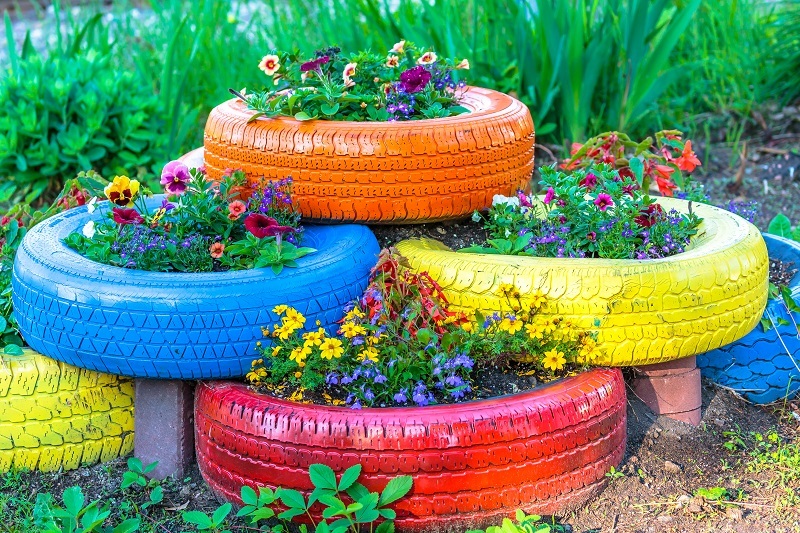Peonies Through the Ages
Posted on 04/11/2024
Peonies have been revered for their beauty and significance for millennia. Named after Paeon, the Greek physician of the gods, these flowers have captivated societies from ancient civilizations to modern times. This article delves into the historical, cultural, and practical aspects of peonies, reflecting on their journey through the ages.
The Ancient History of Peonies
Peonies trace their roots back to ancient China, where they were treasured for their medicinal properties as much as their aesthetic appeal. Records from the Tang Dynasty (618-907 AD) highlight their importance in traditional Chinese medicine, treating ailments from headaches to liver disease. These flowers were so prized that they became known as the "King of Flowers."
In ancient Greece, peonies were associated with Paeon, the physician who healed Hades and Ares during the Trojan War. The Greeks believed peonies could soothe various maladies, and their mythological origins only enhanced their legendary status.

Peonies in Medieval and Renaissance Europe
Peonies found their way to Europe during the Middle Ages, where monks cultivated them in monastery gardens for their medicinal benefits. By the Renaissance, peonies had become a symbol of wealth and opulence, often featured in art and literature.
Medicinally, European herbalists used peonies to treat epilepsy, jaundice, and skin conditions. The flowers' broad medicinal reputation ensured their continued cultivation and reverence.
19th and 20th Century Peony Cultivation
The 19th century marked a golden age for peony breeding, particularly in France, where botanist Victor Lemoine developed several new varieties. His work was celebrated worldwide, leading to peonies' growth in popularity across Europe and North America.
In the early 20th century, peony cultivation expanded significantly in the United States. The renowned peony farm, Hollingsworth Peonies, was founded in Missouri, further cementing the flower's popularity within American horticulture. Today, the peony remains a staple in gardens worldwide.
Modern Symbolism and Usage
Peonies retain substantial cultural significance today. In China, they symbolize prosperity, honor, and compassion. They are also a popular motif during Chinese New Year celebrations and are the state flower of Indiana in the United States.
Beyond symbolism, modern horticulturists and florists prize peonies for their lush, full blooms and fragrant scent. Their versatility makes them a popular choice for wedding bouquets, garden landscaping, and interior decor.
Tips for Growing Peonies
- Choose the Right Location: Peonies prefer a sunny spot with well-drained soil. Avoid placing them in areas prone to water logging.
- Proper Planting: Plant peonies shallowly, with the eyes (buds) no more than 1-2 inches below the soil surface.
- Watering: Water peonies regularly, especially during dry spells. Ensure the soil remains moist but not waterlogged.
- Mulching: Apply mulch around your peonies to conserve moisture and control weeds.
- Support: Use stakes or rings to support heavy blooms, preventing stems from bending or breaking.
Pros and Cons of Growing Peonies
Pros
- Long-lived: Peonies can thrive for decades with minimal care.
- Beautiful Blooms: Their striking, fragrant flowers enhance any garden or floral arrangement.
- Low Maintenance: Once established, peonies require relatively little care.
Cons
- Slow to Establish: Peonies can take a few years to start blooming prolifically.
- Susceptible to Botrytis Blight: This fungal disease can affect peony health if not properly managed.
- Specific Planting Depth: Planting too deep or too shallow can hinder growth and blooming.

Key Takeaways
- Peonies have a rich history, cherished in ancient China and Greece for their medicinal properties.
- They became a symbol of luxury in medieval and Renaissance Europe.
- Modern peony cultivation owes much to the 19th and 20th-century horticulturists in Europe and America.
- Peonies remain culturally significant and highly valued for their beauty and fragrance.
- With proper care and attention to planting and location, peonies can be a stunning, long-lasting addition to any garden.
Conclusion
Peonies have journeyed through the ages, evolving from ancient medicinal plants to beloved garden staples. Their beauty, resilience, and rich history make them a fascinating subject for horticultural enthusiasts and historians alike. While they do require some patience and care to cultivate, the rewards of lush, fragrant blooms make the effort worthwhile. Whether you're an experienced gardener or a beginner, peonies can add timeless elegance and charm to your outdoor space.
Latest Posts
Harnessing the Beauty of Orchids with Care
A Burst of Happiness: Birthday Flower Choices They'll Love
The Enduring Bond of Red Roses and Valentine's Day





